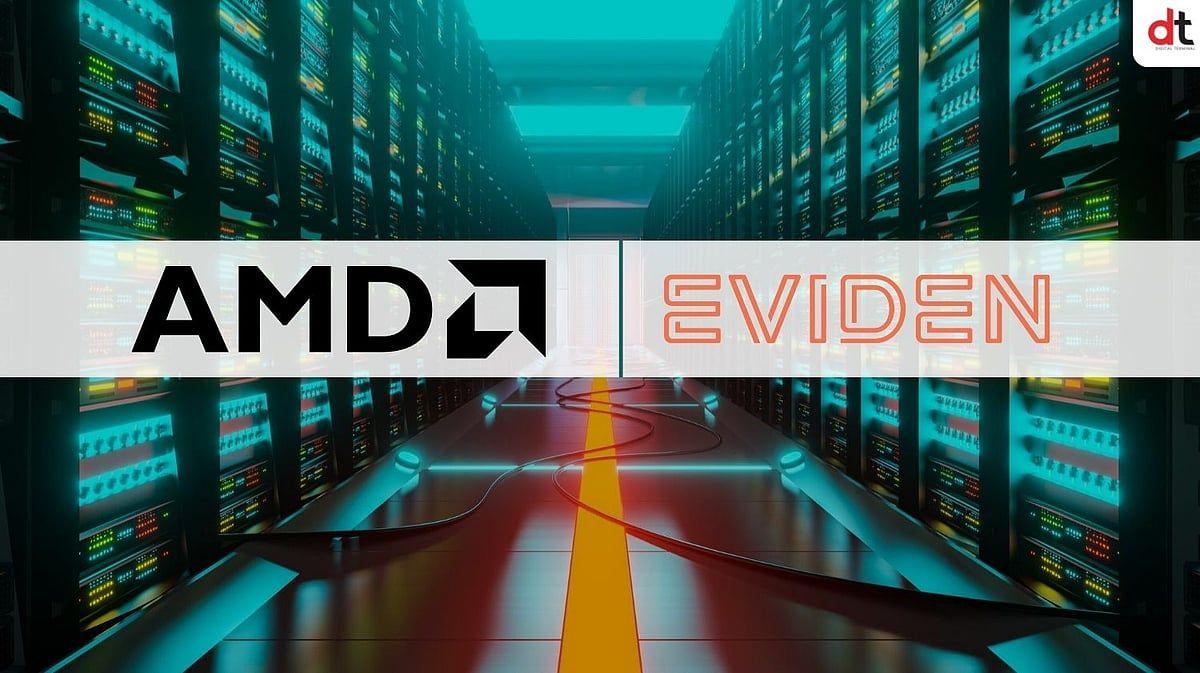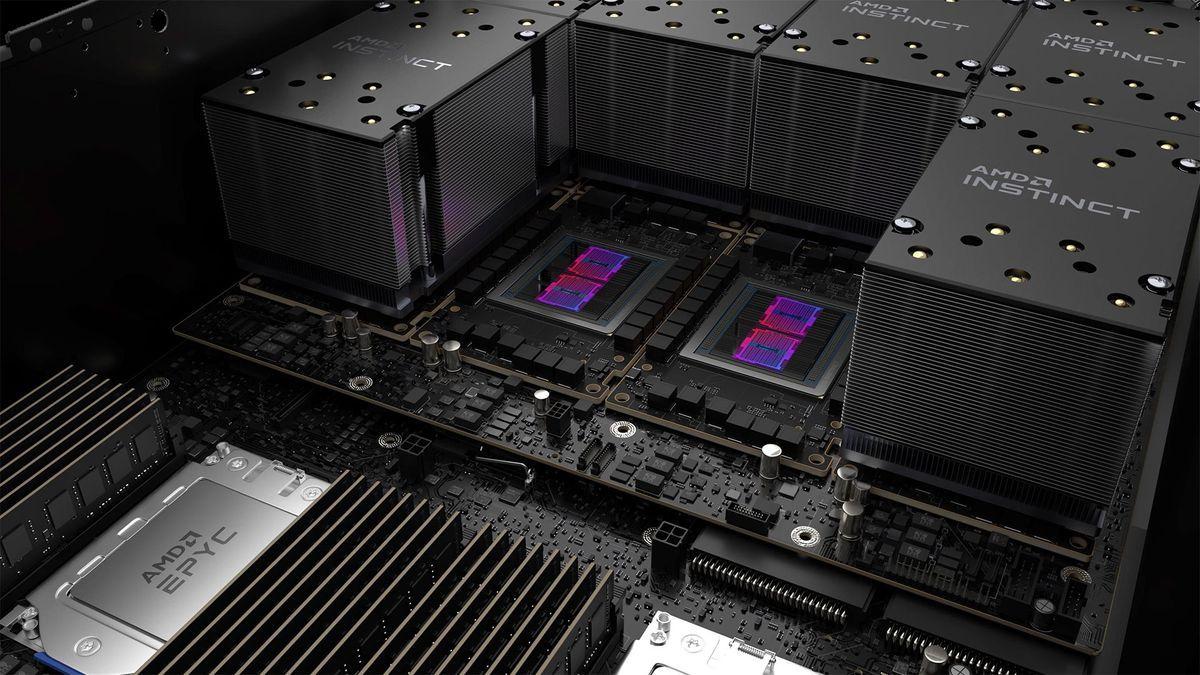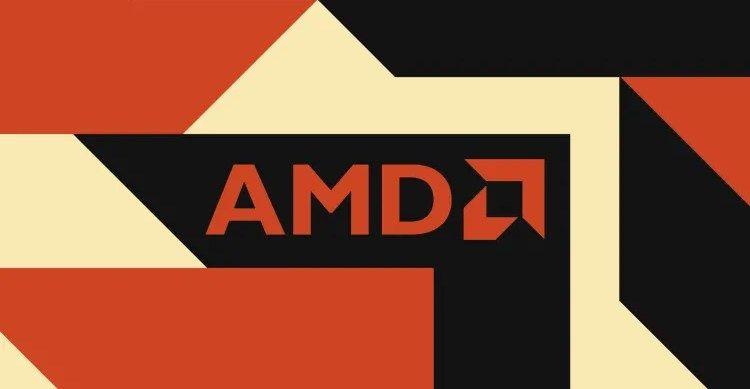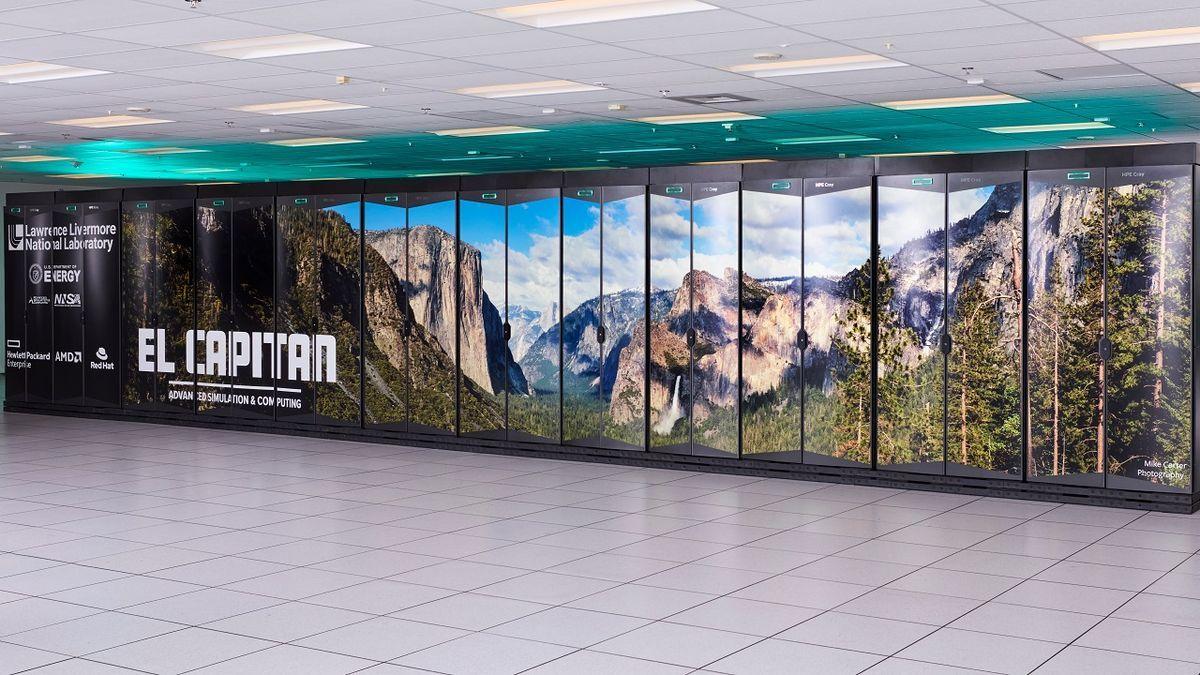AMD Powers France's First Exascale Supercomputer in €544 Million European AI Independence Push
6 Sources
6 Sources
[1]
AMD and Eviden unveil Europe's second exascale system -- EPYC 'Venice' and Instinct MI430X powered system breaks the ExaFLOP barrier
AMD and Eviden, an Atos Group-controller maker of supercomputers, have announced their first project -- the Alice Recoque supercomputer -- that will use AMD's next-generation EPYC 'Venice' CPUs and Instinct MI430X accelerators to achieve performance beyond 1 ExaFLOPS. The machine will cost over half a billion euros and will be accessible to researchers working on demanding AI and scientific projects. The Alice Recoque supercomputer will be based on AMD's upcoming EPYC 'Venice' processors with up to 256 cores; the company's next-generation Instinct MI430X accelerators based on the CDNA 5 architecture and equipped with 432 GB of HBM4 memory that is tailored for HPC, but also supports FP4 and FP8 data formats to make them useful for AI; and AMD's FPGAs to give the system more flexibility and versatility. The full installation of Alice Recoque will consist of 94 racks based on Eviden's BullSequana XH3500 platform with DDN storage and will use the company's BXI fabric to link all compute resources and enable high-performance scale-out connectivity. The system is planned to run at around 12 megawatts during typical loads and will use Eviden's 5th Generation warm-water liquid cooling for all power-hungry components. Interestingly, the Alice Recoque supercomputer will also pack sovereign Rhea2 CPUs (note that this is the first time we hear about Rhea2, as previously we only heard about Rhea or Rhea1) for users who prefer to perform their computations on processors developed in Europe. Keeping in mind that Rhea2 has not taped out yet, we can only wonder when these racks will be installed, but perhaps sometime towards the end of the decade. Alice Recoque will cost €544 billion, which will come from EuroHPC JU, the Digital Europe Programme, and the Jules Verne consortium, which includes France (GENCI, CEA), the Netherlands (SURF), and Greece (GRNET). The machine will be installed in France under the responsibility of GENCI, which will host the system, while CEA will operate it once deployed. The system will ultimately serve researchers and industrial users across Europe and will support a variety of projects, including climate research, materials and energy science, personalized medicine, AI model development, and analysis of massive data streams from satellites, telescopes, and IoT sources. The press release does not specify the commissioning or operational date of Alice Recoque, but given the fact that AMD is set to introduce its EPYC 'Venice' CPUs and Instinct MI430X accelerators in 2026, it is reasonable to expect the machine to enter service in 2027 or 2028.
[2]
Eviden to build France's first exascale rig with AMD chips
€544M Alice Recoque system aims to lift Europe's research horsepower SC25 France will get its first exascale supercomputer -- Europe's second -- when Atos subsidiary Eviden builds Alice Recoque using AMD chips. The EuroHPC Joint Undertaking is funding the €544 million ($630 million) project to expand European research capabilities in simulations, data analysis, and AI for societal, scientific, and industrial challenges. Named after French computer scientist Alice Recoque, the modular system will launch with AMD's upcoming "Venice" Epyc CPUs and Instinct MI430X GPUs. A second partition will add a CPU cluster like Europe's first exascale system, Jupiter, which runs Nvidia Grace-Hopper GH200 superchips and will expand with SiPearl's Rhea1 processor. Located at France's National High-Performance Computing Equipment (GENCI) facility in Paris, the system comprises 94 racks of Eviden's BullSequana XH3500 architecture - upgraded with fanless direct liquid cooling to handle denser, hotter infrastructure. The accelerator partition will also feature AMD-made FPGAs and will be linked by Eviden's high-bandwidth BullSequana eXascale Interconnect (BXI) networking, v3 of which supports speeds up to 800 Gbps (in the switches - the adapters are 400 Gbps), plus DDN storage. It's expected by late 2026, pending AMD's chip availability next year. The general-purpose compute partition, based on SiPearl's Rhea2 CPU and BXI networking, will arrive in 2027, although SiPearl hasn't yet shipped production versions of its first processor. Eviden claims Alice Recoque will operate at just 12 megawatts for average workloads, making it more energy-efficient than comparable exascale systems. While Eviden calls it an "AI Factory" covering the full AI lifecycle, this differs from Nvidia's definition. Alice Recoque will also handle traditional HPC workloads like modeling and simulations. The company says that Alice Recoque has been "designed as an AI Factory," covering the entire AI lifecycle. However, it is clearly using a different definition of the term from GPU giant Nvidia, which regards an "AI Factory" as being entirely dedicated to processing AI, while Alice Recoque will also carry out traditional HPC workloads such as modeling and simulations. ®
[3]
AMD is the hardware of choice for France's first 'AI factory' supercomputer
Move over Nvidia -- France's first Exascale Supercomputer will be powered by AMD hardware. Eyponomously named the Alice Recoque, after the French computer scientist who passed away in 2021, the supercomputer is a collaboration between AMD and Eviden. Europe's second supercomputer to date, the Alice Recoque will be built with next-gen AMD EPYC CPUs, codenamed "Venice," and AMD Instinct MI430X GPUs. The latter of these is part of the MI400 series of accelerators that is geared towards AI computing for scientific research specifically. Eviden then covers networking, connecting AMD's components via its BullSequana XH3500 platform. The whole thing is being touted as an 'AI factory'. The hope is that all of this cutting-edge tech will mean France's first supercomputer will be capable of delivering "more than one exaflop of HPL performance" upon completion. HPL here refers to 'High-Performance Linpack', which is a type of benchmark to test serious processing power, such as what the Alice Recoque will eventually possess. According to AMD's own definition of HPL, this benchmark specifically involves solving "a (random) dense linear system in double precision (64 bits) arithmetic on distributed-memory computers." I won't attempt to drill down into the specifics on that one, but it's a benchmark specifically used by supercomputers to deliver a big number on which to hang their absurdly high costs. Sort of like a car's top speed, it's unlikely to hit this sorta performance all the time, but it's undoubtedly extremely powerful. Let's return to a subject a little more approachable: money. The entire project will cost an estimated €544 million. Funding is a team effort stemming in part from the Digital Europe Programme and the Jules Verne Consortium, which includes partner organisations in France, the Netherlands, and Greece. The hope is that all those exoflops will eventually "enhance climate modeling, accelerate innovation in materials and energy, enable digital twins for personalized medicine, and support next-gen European AI models." Long story short, there's a lot of money and a lot of international interest wrapped up in this project. This is in the hopes of maintaining "sovereignty" in Europe's own AI research, thereby avoiding a reliance on, say, AI technologies founded by US companies. However, if Google CEO Sundar Pichai's recent warning is to be believed -- that "No company is going to be immune" in the event of an AI bubble burst -- it's hard to predict just how important 'sovereignty' in AI research will be.
[4]
AMD Chips Will Drive France's First Supercomputer That Beats Human Brainpower - Advanced Micro Devices (NASDAQ:AMD)
Advanced Micro Devices, Inc. (NASDAQ:AMD) is powering France's first exascale supercomputer, a landmark project that showcases the chipmaker's growing influence in global AI and scientific computing. In a major win for its AI ambitions, the Nvidia Corp (NASDAQ:NVDA) rival will supply the cutting-edge chips behind a new European supercomputer designed to push breakthroughs in research and reduce reliance on foreign technology. AMD and French tech company Eviden will build a powerful new supercomputer called Alice Recoque to help Europe compete in artificial intelligence and scientific research. Also Read: ChatGPT Parent OpenAI, AMD Partner In Landmark AI Deal It will be installed in France and become the country's first -- and Europe's second -- exascale supercomputer, capable of performing more than a billion-billion calculations per second. That's faster than humans could think through in four straight years. France's public research agencies are funding the $600-million project with help from the European Union. AMD's newest processors and graphics chips will power the system, giving it the muscle to handle large-scale scientific problems such as climate modeling, medical research, clean-energy innovation, and next-generation AI training. Even with all this performance, the supercomputer is designed to use far less energy than older systems. Eviden will cool the entire machine using warm water. Redesigned components will cut power costs while maintaining top-tier performance. Europe sees this supercomputer as key to technology independence. By building more components locally and controlling the supply chain, France and its partners aim to reduce their reliance on foreign tech companies -- especially in strategic areas like AI. AMD, a $390 billion company, gained over 99% year-to-date, backed by AI data center graphics processing unit (GPU) space expansion. It expects to continue gaining ground against Intel in the central processing unit (CPU) markets for PCs and servers. Wall Street reacted positively to AMD's aggressive growth plans tied to booming demand for AI chips. Analysts expect substantial long-term expansion but differ on near-term stock upside. Goldman Sachs' James Schneider said AMD set financial goals that beat expectations and highlighted OpenAI as a major revenue driver, but says he wants clearer visibility into that opportunity before turning more bullish. JPMorgan's Harlan Sur expects datacenter sales to surge as AMD gains share in AI GPUs and server CPUs, driving stronger margins and earnings power by 2027. Bank of America's Vivek Arya noted AMD taking double-digit share of the AI chip market, leading to more than $100 billion in future datacenter revenue and major earnings growth through 2030. Price Action: AMD stock traded 1.24% lower to $237.53 in premarket trading at last check on Tuesday. AMDAdvanced Micro Devices Inc $227.01-5.62% Overview NVDANVIDIA Corp $181.09-2.95% Market News and Data brought to you by Benzinga APIs
[5]
AMD and Eviden to Build France's First Exascale Supercomputer, Alice Recoque
Emmanuel Le Roux, Group SVP, Global Head of Advanced Computing and AI, Eviden at Atos said, "Alice Recoque represents another critical step toward Europe's digital future, defined by a sovereignty, sustainability and scientific excellence. As a catalyst for scientific and industrial breakthroughs, from climate modeling and healthcare to advanced materials and AI innovation, it will empower researchers and industries across Europe. Born from a shared European vision, this AI Factory reflects on what we can achieve collectively toward a common goal. Eviden is fully dedicated to its success, bringing deep expertise, a collaborative spirit, and a long-term dedication to responsible technological leadership." An AI-HPC Factory to Tackle Europe's Most Pressing AI Challenges Alice Recoque will tackle Europe's most pressing societal, scientific, and industrial challenges by combining large-scale simulations, data analysis, and AI. Alice Recoque covers the entire computing lifecycle, integrating cutting-edge hardware, advanced AI software and proven AI use cases to deliver scalable high-impact solutions. This comprehensive project is a live implementation of the strong collaboration and commitment from Eviden and AMD to accelerate research and industrialization of AI use cases, with a major investment in both human and technological resources. The Alice Recoque system is powered by next-gen AMD EPYC™ CPUs, codenamed "Venice," AMD Instinct™ MI430X GPUs -- a new MI400 Series accelerator engineered for sovereign AI and scientific computing -- and AMD FPGAs, interconnected by Eviden's network solution (BXI) into its newest BullSequana XH3500 platform, with DDN storage. This powerful system will enhance climate modeling, accelerate innovation in materials and energy, enable digital twins for personalized medicine, and support next-gen European AI models.
[6]
AMD and Eviden Announces Their Selection to Build Alice Recoque, Next-Generation Supercomputer
AMD and Eviden announced their selection to build Alice Recoque, a next-generation supercomputer to support the need for high performance computing (HPC) and AI, serving as an AI Factory. Alice Recoque will be France's first and Europe's second Exascale supercomputer, led by Grand equipement national de calcul intensif (GENCI), operated by Commissariat a l'energie atomique et aux energies alternatives (CEA), and powered by next-generation AMD AI and HPC compute technologies. This project, representing an overall cost of 544 million euros, is funded by EuroHPC JU, with budget stemming from the Digital Europe Programme (DEP), and the Jules Verne Consortium, led by France through GENCI and CEA with the participation of Netherlands IT cooperation SURF and Greece with GRNET. AMD's ability to generate revenue from its semi-custom SoC products; potential security vulnerabilities; potential security incidents including IT outages, data loss, data breaches and cyberattacks; uncertainties involving the ordering and shipment of AMD's products; AMD's reliance on third-party intellectual property to design and introduce new products; AMD's reliance on Third-party companies for design, manufacture and supply of motherboards, software, memory and other computer platform components; AMD's reliance on Microsoft and other software vendors' support to design and develop software to run on AMD's products; AMD's rely on third-party distributors and add-in-board partners; impact of modification or interruption of AMD's internal business processes and information systems; compatibility of AMD's products with some or all industry-standard software and hardware; costs related to defective products; efficiency of AMD's supply chain; AMD's ability to rely on third party supply-chain logistics functions; AMD's ability to effectively control sales of its products on the gray market; impact of climate change on AMD's business; impact of government actions and regulations such as export regulations, import tariffs, trade protection measures and licensing requirements; AMD's ability to realize its deferred tax assets; potential tax liabilities; current and future claims and litigation; impact of environmental laws, conflict minerals related provisions and other laws or regulations; evolving expectations from governments, investors, customers and other stakeholders regarding corporate responsibility matters; issues related to the responsible use of AI; restrictions imposed by agreements governing AMD's notes, the guarantees of Xilinx's notes and the revolving credit agreement; impact of acquisitions, joint ventures and/or strategic investments on AMD's business and AMD's ability to integrate acquired businesses, including ZT Systems; impact of any impairment of the combined company's assets; political, legal and economic risks and natural disasters; future impairments of technology license purchases; AMD's ability to attract and retain key employees; and AMD's stock price volatility.
Share
Share
Copy Link
AMD and Eviden unveil Alice Recoque, France's first exascale supercomputer capable of over 1 ExaFLOPS performance. The €544 million system uses next-generation AMD EPYC 'Venice' CPUs and Instinct MI430X accelerators to advance European AI sovereignty and scientific research.
AMD Secures Major European Supercomputing Contract
Advanced Micro Devices (AMD) has partnered with French technology company Eviden to build Alice Recoque, France's first exascale supercomputer and Europe's second such system. The €544 million ($630 million) project represents a significant milestone in European efforts to achieve technological sovereignty in artificial intelligence and high-performance computing
1
.
Source: DT
Named after French computer scientist Alice Recoque who passed away in 2021, the supercomputer will deliver more than one exaflop of High-Performance Linpack (HPL) performance, making it capable of performing over one billion-billion calculations per second
3
.Cutting-Edge Hardware Architecture
The Alice Recoque system will be powered by AMD's next-generation EPYC 'Venice' processors featuring up to 256 cores, paired with the company's upcoming Instinct MI430X accelerators based on CDNA 5 architecture. These accelerators will be equipped with 432 GB of HBM4 memory specifically tailored for high-performance computing while supporting FP4 and FP8 data formats for AI workloads
1
.
Source: Tom's Hardware
The full installation will consist of 94 racks based on Eviden's BullSequana XH3500 platform, interconnected by the company's high-bandwidth BullSequana eXascale Interconnect (BXI) networking technology. The third version of BXI supports speeds up to 800 Gbps in switches with 400 Gbps adapters, complemented by DDN storage systems
2
.European Sovereignty Initiative
The project is being funded through a collaborative European effort involving the EuroHPC Joint Undertaking, the Digital Europe Programme, and the Jules Verne consortium, which includes France (GENCI, CEA), the Netherlands (SURF), and Greece (GRNET). This funding structure reflects Europe's strategic commitment to reducing dependence on foreign technology companies, particularly in critical areas like AI and scientific computing
1
.Interestingly, the system will also incorporate sovereign Rhea2 CPUs developed in Europe, marking the first mention of this second-generation processor from SiPearl. However, since Rhea2 has not yet taped out, this partition is expected to arrive in 2027, following the main AMD-powered system
1
.Related Stories
Energy Efficiency and Deployment Timeline
Despite its massive computational power, Alice Recoque is designed to operate at approximately 12 megawatts during typical workloads, making it more energy-efficient than comparable exascale systems. The system will utilize Eviden's 5th Generation warm-water liquid cooling technology for all power-hungry components, featuring fanless direct liquid cooling to handle the denser, hotter infrastructure
2
.The supercomputer will be installed at France's National High-Performance Computing Equipment (GENCI) facility in Paris, with CEA responsible for operations once deployed. Given that AMD plans to introduce its EPYC 'Venice' CPUs and Instinct MI430X accelerators in 2026, the system is expected to enter service in 2027 or 2028
1
.
Source: Benzinga
Research Applications and Market Impact
Alice Recoque will serve researchers and industrial users across Europe, supporting diverse projects including climate research, materials and energy science, personalized medicine, AI model development, and analysis of massive data streams from satellites, telescopes, and IoT sources. The system is being positioned as an "AI Factory" covering the entire AI lifecycle, though this differs from Nvidia's definition as it will also handle traditional HPC workloads
5
.For AMD, this contract represents a significant victory in its competition with Nvidia in the AI and HPC markets. The company's stock has gained over 99% year-to-date, driven by expansion in AI data center GPU space and continued market share gains against Intel in CPU markets
4
.References
Summarized by
Navi
[1]
[2]
Related Stories
Recent Highlights
1
ByteDance's Seedance 2.0 AI video generator triggers copyright infringement battle with Hollywood
Policy and Regulation

2
Demis Hassabis predicts AGI in 5-8 years, sees new golden era transforming medicine and science
Technology

3
Nvidia and Meta forge massive chip deal as computing power demands reshape AI infrastructure
Technology








